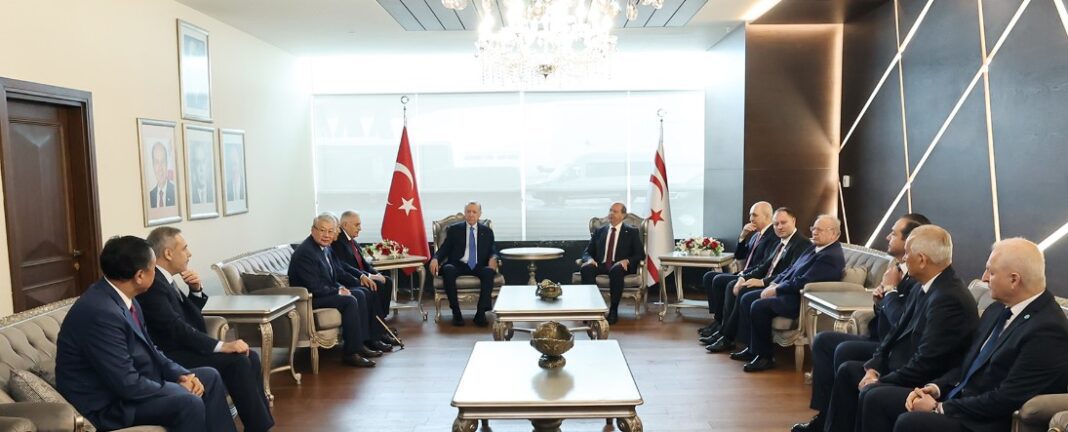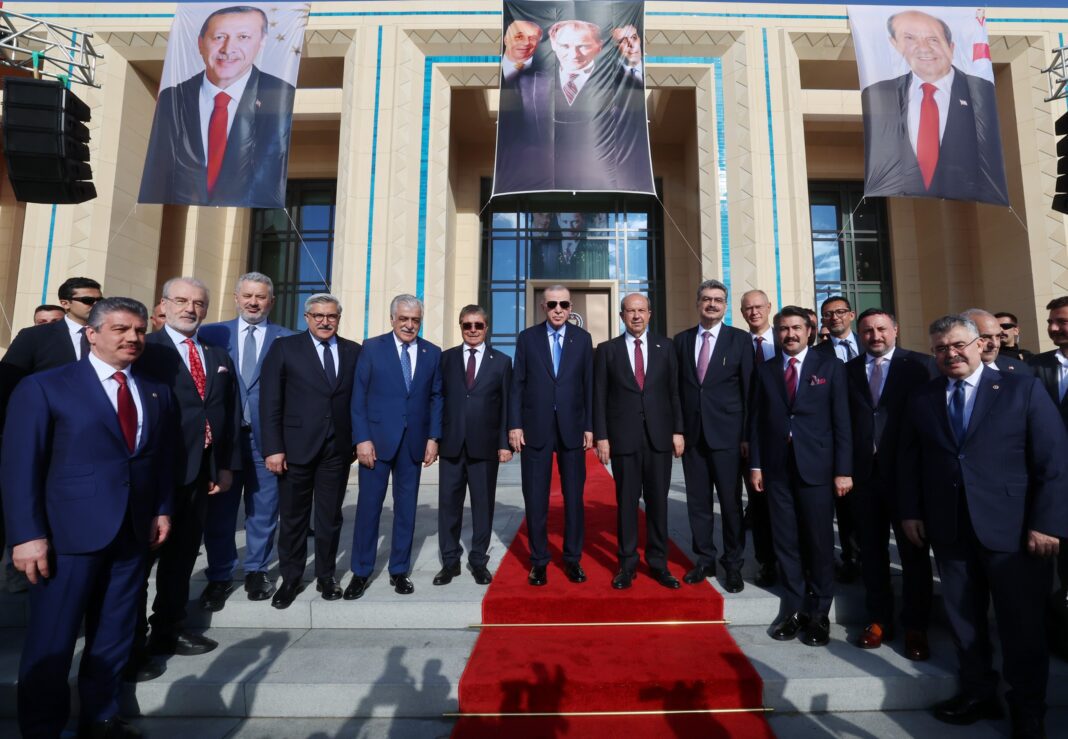By Turkish Minute,
Turkish President Recep Tayyip Erdoğan’s visit to northern Cyprus on Saturday, aimed at demonstrating Ankara’s political and financial backing of the breakaway Turkish Cypriot state, comes amid renewed attention to longstanding allegations of corruption and lawlessness in the country following the assassination of a whistleblower who exposed its role in illegal gambling and political payoffs.
Erdoğan arrived in the Turkish Republic of Northern Cyprus (KKTC) for his first official trip to the island since his reelection in 2023. He was scheduled to inaugurate a newly constructed presidential and parliamentary complex in Nicosia, the northern part of which is controlled by the KKTC and serves as its capital city, and participate in a TEKNOFEST awards ceremony, part of Turkey’s state-sponsored aerospace and technology initiative.
The visit is intended to highlight Turkey’s strategic commitment to the KKTC, which is recognized only by Ankara and remains internationally considered part of the Republic of Cyprus. The new government complex, funded and built by Turkey’s public housing agency TOKİ, spans more than 600,000 square meters and includes offices for the presidency, the parliament and the prime ministry as well as landscaped gardens.
But Erdoğan’s visit comes just days after the assassination of Cemil Önal, a former insider who had publicly accused Ankara-linked political figures of using northern Cyprus as a hub for money laundering and bribery. Önal, 41, was shot dead on May 1 at a hotel in the Dutch city of Rijswijk, where he had been placed under police protection. His killing has raised new questions about the KKTC’s role as a safe haven for illegal networks.
Önal served for years as the financial manager for Halil Falyalı, a casino tycoon and alleged crime boss who was murdered in northern Cyprus in 2022. After falling out with Falyalı’s network and fleeing Turkey, Önal spent over a year in Dutch custody under an INTERPOL Red Notice requested by Ankara, which accused him of helping orchestrate Falyalı’s killing. Önal denied the charges, claiming he was being targeted because of what he knew.
After Dutch courts denied Turkey’s extradition request and recently released him, Önal began cooperating with international journalists. In interviews with Follow the Money and the Organized Crime and Corruption Reporting Project (OCCRP), he alleged that up to $80 million per month in profits from illegal betting sites in northern Cyprus was laundered offshore and used to pay monthly bribes of $15 million to Turkish and Turkish Cypriot officials.
Önal said he helped manage these payments through shell companies in Curaçao and described how the KKTC’s lax oversight allowed politically protected criminal enterprises to flourish. He also alleged that top Turkish officials — including aides to President Erdoğan — attempted to recover compromising blackmail videos amassed by Falyalı, which allegedly implicated family members of ruling party elites.
On the night before his murder, Önal called exiled Turkish journalist Cevheri Güven twice. According to Güven, Önal said Dutch police had recently relocated him from his home to a hotel because of credible threats. In the second call, Önal asked Güven to confirm the name of someone previously linked to a plot against the journalist, suggesting he feared the same network was now targeting him. Less than 24 hours later, Önal was fatally shot.
Dutch authorities confirmed that Önal and his lawyer had repeatedly warned prosecutors about the threats against him but said there was insufficient evidence to act before the attack. No arrests have been made, and the motive remains under investigation.
Erdoğan has made no public comment on the murder. But the visit to the KKTC, well coordinated with President Ersin Tatar, is widely viewed as a message of continuity — affirming Turkey’s control over the north and its intention to deepen political and infrastructural ties.





